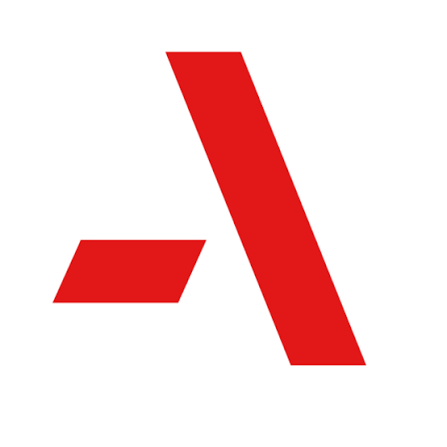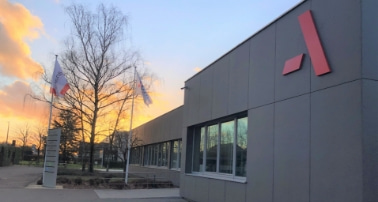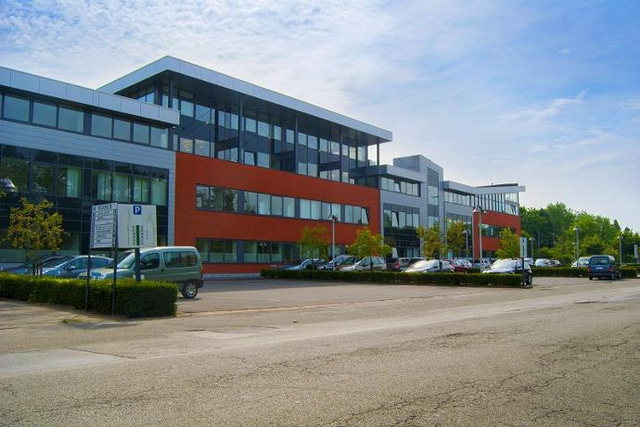


The Belgian company Analis was founded in 1927 in the city of Namur, in the French-speaking region of Wallonia. The name likely derives from the anagram Arsenal Namurois d’Appareils pour Laboratoires et Instruments Scientifiques — “Namur Arsenal of Instruments for Laboratories and Scientific Devices” — reflecting its original focus on the manufacture and distribution of scientific and analytical instruments. From the very beginning, Analis operated as a small technical workshop supplying equipment to laboratories and meteorological stations. Although the names of its early founders are not well documented, they were local engineers from Namur who laid the groundwork for what would become one of Belgium’s key suppliers of scientific and meteorological instruments during the interwar period.
The founding of Analis in 1927 coincided with a period of relative economic stability in Europe, following the recovery after the First World War. In Belgium, this era saw increased investment in industry, academic research, and medicine, which created a steady demand for modern laboratory equipment. Analis initially occupied a unique niche, specializing not only in the distribution of instruments but also in their technical maintenance. Unlike simple trading houses, its emphasis on service gave the company a competitive advantage and the ability to handle high-precision imported equipment.
The early headquarters at 14 Rue Dewez, Namur, became a cornerstone of the company’s history. Namur, being an administrative and educational hub, offered direct access to clientele in Wallonia — both industrial and university laboratories. Historical records indicate that by 1939, Rue Dewez was a vibrant commercial street, home to several offices and specialty shops.
During the 1920s and 1930s, the Belgian laboratory equipment market was heavily dependent on imports. Acting as a distributor, Analis focused on precision optics and measuring instruments. At that time, the world’s leading microscope manufacturers were the German firms Carl Zeiss and Leitz, along with the American companies Bausch & Lomb and Spencer. Analis likely served as a regional agent supplying Belgian research centers and industrial laboratories with these vital imports, along with related equipment such as laboratory furniture, glassware, and chemical reagents. Its specialization in maintenance was crucial, as such instruments were expensive and required expert servicing.
The outbreak of the Second World War and the German occupation of Belgium in 1940 dealt a devastating blow to international trade, upon which Analis’s distribution model depended. The years 1940–1944 were marked by a near-total halt of foreign imports, blockades, and German control of resources. The possibility of selling new, high-quality imported scientific instruments all but vanished.
Nevertheless, scientific activity in Belgium did not cease entirely. Under occupation, the continued operation of universities and research institutes — especially in French-speaking regions — was seen by many as a form of “intellectual resistance.” Deprived of new equipment, these institutions became critically dependent on companies capable of maintaining their pre-war instruments.
After liberation, Belgium faced an urgent need for reconstruction. The country endured multiple supply crises, with severe shortages of food, fuel, and foreign currency needed for imports. Scientific and industrial laboratories, worn down by years of continuous use without renewal, required complete refurbishment.
Analis provided a ready-made logistical and technical network within Wallonia, becoming an essential link in the rapid revival of the scientific sector. Its ability to scale operations quickly, supported by the macroeconomic stimulus of the Marshall Plan, allowed Analis to surpass its pre-war size and secure a position as a regional leader within the Benelux.
The post-war recovery stimulated demand for laboratory equipment not only in academia but also in the re-emerging heavy industries of Wallonia — metallurgy, chemistry, and mining. Analis expanded its product range to include a broader selection of equipment and laboratory furniture, a line that remains integral to its business identity today.
By the mid-20th century, Analis had evolved from a small local workshop into a nationally recognized supplier of precision instruments. The company survived the upheavals of the war and expanded throughout the 1950s and 1960s, focusing on the calibration and development of scientific instruments for universities, research institutions, and meteorological services. By the 1970s, Analis had become well known throughout Belgium and neighboring countries as a trusted manufacturer and distributor of fine measuring equipment.
A major milestone came in 1987, when the company was formally incorporated as Analis S.A./N.V. (Société Anonyme / Naamloze Vennootschap). Around this time, its headquarters moved from central Namur to the industrial zone of Rhisnes, in the suburb of Suarlée, where the company remains to this day. During this period, Analis continued producing high-precision mechanical and glass instruments for meteorological and laboratory use.
Its meteorological line included mercury barometers—often of the Fortin type—with finely engraved scales for exact atmospheric pressure readings; aneroid barometers based on Vidie capsules; barographs with clockwork recording drums; thermometers and thermographs for continuous temperature monitoring; hair hygrometers and hygrographs; and pluviographs and rain gauges for hydrological measurements. Many of these self-recording devices were used by Belgian universities and the Royal Meteorological Institute. A few examples of Analis barographs and pluviographs occasionally surface at auctions today, identifiable by their brass plates engraved “Instruments Scientifiques – Analis Namur.”
Throughout the late 20th century, the company preserved its reputation for precision and reliability. It expanded from manufacturing into large-scale distribution while retaining a family-owned structure across generations. In the 1980s and 1990s, Analis increasingly turned toward analytical and biotechnological instrumentation, maintaining its legacy of meticulous craftsmanship.
A significant step in innovation came in 1982, with the creation of an internal research and development division. This initiative enabled the company to produce reagents for clinical chemistry and diagnostic test kits based on agarose gel electrophoresis. Within a few years, Analis introduced a line of specialized diagnostic kits for the identification and analysis of proteins, enzymes, and hemoglobins — including tests for sickle-cell anemia. These products were met with strong success both in Belgium and internationally.
By the late 1990s, Analis began new research in capillary electrophoresis, a technology used to separate and identify macromolecules such as proteins, peptides, and food-related compounds — a direction that would shape its later biotech activities.
In the early 21st century, Analis entered a new phase of growth. Management gradually passed to a new generation of shareholders, including members of the Lacoste family, who modernized operations and expanded international outreach. Under CEO Vincent Luyckx, appointed in 2016, Analis pursued acquisitions and partnerships that strengthened its position as a leading integrator of laboratory solutions. Among these were Ardesta, a Belgian manufacturer of laboratory furniture, and Hymetec, specializing in disinfection and contamination control systems. In 2020, Analis acquired VOS Instrumenten in the Netherlands, and in 2021, it co-founded Dulis, a joint venture with France’s Dutscher Group for the distribution of laboratory consumables.
Today, in the 2020s, Analis S.A. remains headquartered in Suarlée near Namur and employs around 140 people, with annual revenues exceeding €40 million. The company maintains two main offices in Belgium — Namur (Wallonia) and Ghent (Flanders) — and a subsidiary in the Netherlands. Its mission now encompasses the delivery of complete laboratory solutions: analytical instruments, reagents, turnkey facilities, furniture, engineering, and technical services. Analis represents over 100 international brands and continues to provide expert calibration, maintenance, and training through its service divisions.
Despite its transformation into a modern scientific distributor, Analis remains proud of its origins as a Namur-based maker of laboratory and meteorological instruments. Nearly a century after its founding, it stands as a respected symbol of Belgian scientific precision. In 2017, Analis received the Grand Prix Alfers, awarded by the Province of Namur for industrial excellence, and in recent years it has obtained B Corp certification for sustainable and socially responsible business practices. The company also runs the Analis Academy, an educational platform offering professional training in laboratory technologies and analytical methods.
In 2027, Analis will celebrate its centenary, marking a full hundred years of continuous operation — from handcrafted mercury barometers to state-of-the-art analytical systems — while preserving its original name, its independence, and its enduring Belgian identity.
Sources: